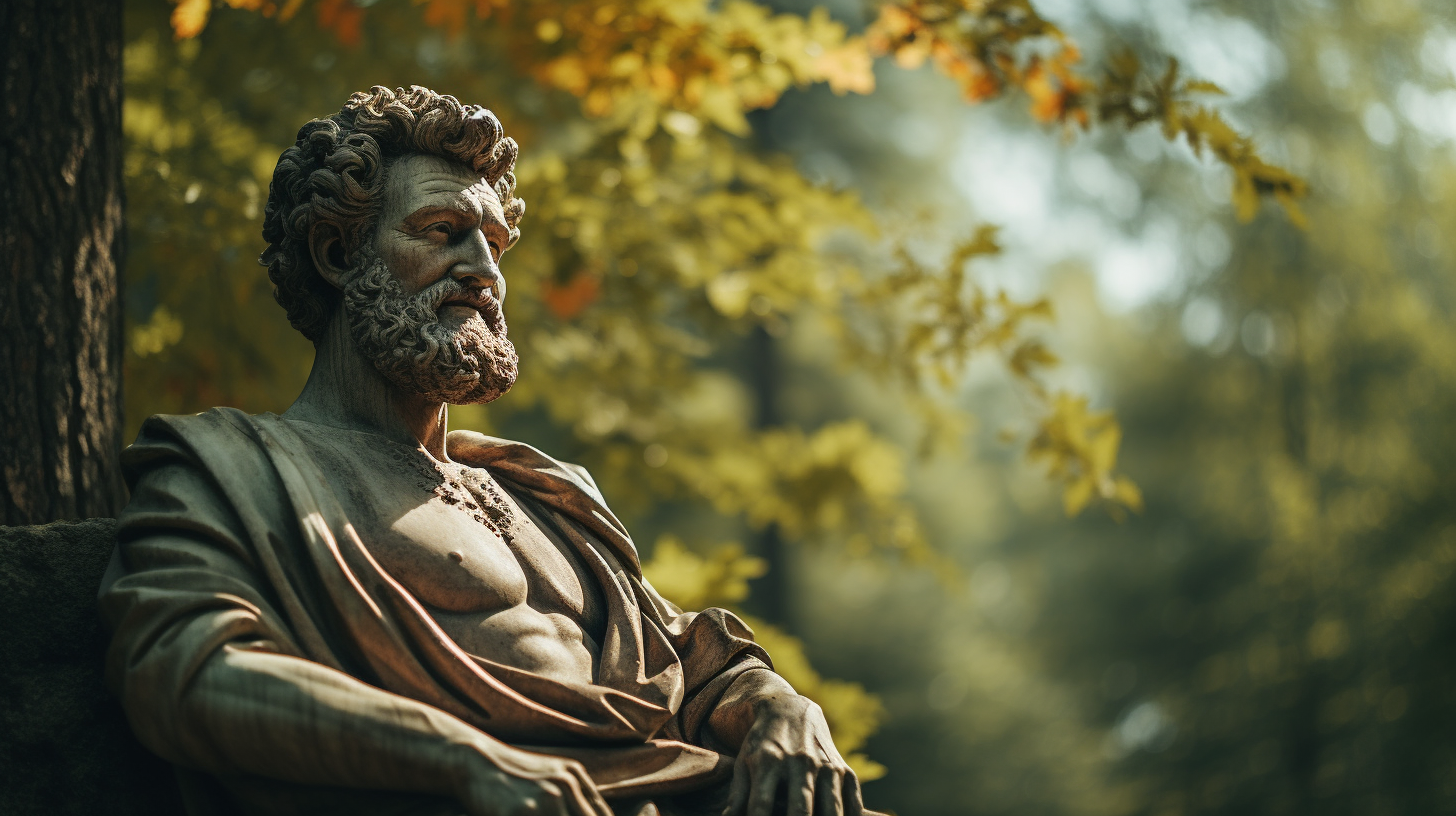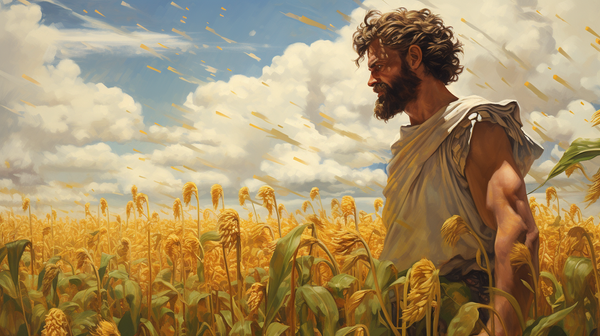Marcus Aurelius, also known as the 'Philosopher King', was one of the most respected emperors in Roman history, reigning from 161 to 180 AD. Born into a prominent family, he rose to power in a period of great military conflict and political instability. Despite his elite status, Marcus is best remembered for his commitment to the Stoic philosophy, which he practiced not just in theory but in the day-to-day running of an empire.
His legacy is most enduringly captured in the series of writings known as "Meditations" - a collection of personal thoughts and exercises in Stoic philosophy. Originally written in Greek while on campaign, these writings were not intended for publication but as a source of personal consolation and self-improvement.
In my latest video, we explore one of the most profound excerpts from Marcus Aurelius’ "Meditations". This passage delves into the concept of finding beauty and appreciation in the unintended outcomes of nature’s processes. Our video, complete with rich imagery and soothing narration, brings this ancient wisdom to life, providing a sensory experience that complements the depth of Marcus's thoughts.
Watch as we traverse through visual examples, from the simple allure of cracked bread to the fierce dignity of a wild boar, each image echoing Aurelius's contemplations on the beauty of imperfections.
The quote read in the video:
We ought to observe also that even the things which follow after the things which are produced according to nature contain something pleasing and attractive. For instance, when bread is baked some parts are split at the surface, and these parts which thus open, and have a certain fashion contrary to the purpose of the baker’s art, are beautiful in a manner, and in a peculiar way excite a desire for eating. And again, figs, when they are quite ripe, gape open; and in the ripe olives the very circumstance of their being near to rottenness adds a peculiar beauty to the fruit.
And the ears of corn bending down, and the lion’s eyebrows, and the foam which flows from the mouth of wild boars, and many other things- though they are far from being beautiful, if a man should examine them severally- still, because they are consequent upon the things which are formed by nature, help to adorn them, and they please the mind; so that if a man should have a feeling and deeper insight with respect to the things which are produced in the universe, there is hardly one of those which follow by way of consequence which will not seem to him to be in a manner disposed so as to give pleasure.
And so he will see even the real gaping jaws of wild beasts with no less pleasure than those which painters and sculptors show by imitation; and in an old woman and an old man he will be able to see a certain maturity and comeliness; and the attractive loveliness of young persons he will be able to look on with chaste eyes; and many such things will present themselves, not pleasing to every man, but to him only who has become truly familiar with nature and her works.
The essence of the quote from Marcus Aurelius lies in the appreciation of the natural world, including its imperfections. Aurelius suggests that there is an inherent beauty in the unpredictable and often overlooked details of life. The bread that cracks as it bakes, the fig that splits when it is ripe, the slight decay in olives, and the froth at the mouth of a wild boar - all of these are not traditionally beautiful, but they hold an aesthetic that is tied to their natural purpose and existence.
What Aurelius teaches us here is to observe the world through a lens of acceptance, finding the underlying comeliness in the natural progression of life, even in decay or in the ferocity of nature. This perspective encourages us to appreciate the full spectrum of beauty, beyond the conventional.

Applying the Lessons to Our Lives
In our modern lives, it’s easy to seek perfection, to airbrush the flaws out of our existence. Social media, advertising, and even our personal expectations often emphasize the polished over the authentic. However, the Stoic wisdom imparted by Marcus Aurelius invites us to embrace the cracks, the signs of maturity, and the unrefined edges of our world.
Here are a few ways we can apply these Stoic lessons:
- 👁️ Seek Beauty in the Everyday: Start noticing and appreciating the beauty in everyday occurrences, like the way light filters through a window or the wisdom etched into the lines of an elderly person's face.
- 😟 Embrace Imperfection: Whether it's in ourselves, others, or our surroundings, understanding that imperfection is natural and often what gives character can lead to a more fulfilling and less stressful life.
- 🌳 Connect with Nature: Aurelius believed that everything natural had a purpose and, by consequence, a form of beauty. Spending time in nature can help us to reconnect with this idea.
- 🧍 Chaste Appreciation of Youth: Marcus urges us to appreciate the beauty of youth in a pure and non-objectifying manner, recognizing the phase of life they are in without undue attachment.
- 💪 Cultivate a Stoic Mindset: Developing a deeper understanding of nature and our place within it can foster resilience and a serene approach to life's challenges.
In conclusion, Marcus Aurelius's reflections prompt us to look beyond superficial appearances and to find joy and beauty in the world as it is. By doing so, we not only become more connected to the world around us but also cultivate a sense of inner peace and contentment that is unshaken by the imperfections of life.
Originally published on stoichandbook.co
